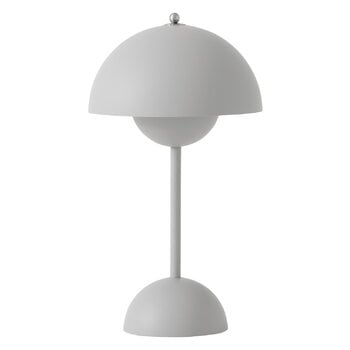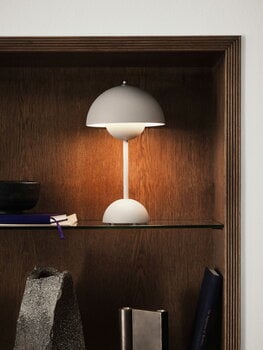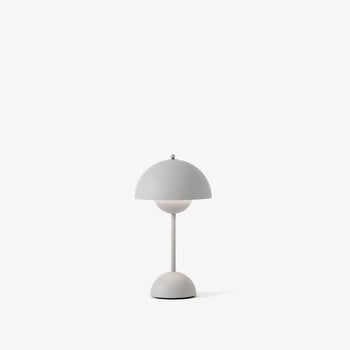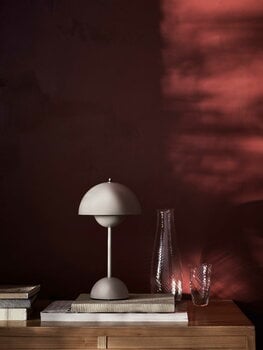&Tradition's portable Flowerpot VP9 is a cordless version of the iconic Flowerpot table lamp designed by Verner Panton. The joyful Flowerpot lamp was inspired by peace, love and the Flower Power era of the 60s, and it became a true design icon soon after its launch. The silhouette of the lamp is created by two hemispheres, which let the light reflect down in a soft, pleasant manner.
The portable VP9 is slightly smaller than the original table lamp, making it easy to carry from one place to another. You can charge the VP9 lamp using a magnetic USB cable or a separately sold charging base. One charge provides light for about 10 hours at the highest setting. The cordless luminaire is easy to move from one place to another as needed – it is ideal for a cottage, garden dinner or other non-electric space. The three-step dimmer ensures that the light intensity is always the right one, whether you use the Flowerpot VP9 luminaire indoors or outdoors.













